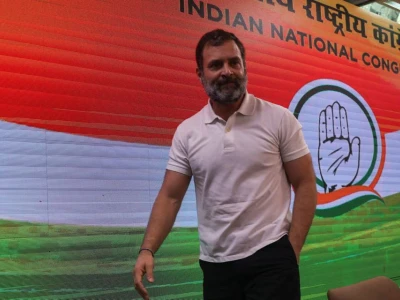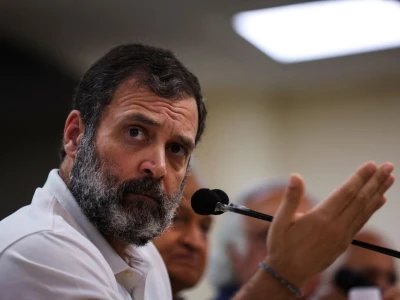
India may no longer be Narendra Modi's
A weaker Indian government may not be too bad.
MUMBAI, June 4 (Reuters Breakingviews) - India may no longer be Narendra Modi's. Indians handed the 73-year-old premier a chance to lead the country for another five years but likely robbed his Hindu nationalist Bharatiya Janata Party of its absolute majority, and him of a strong grip over the world's fifth-largest economy. Even if he is able to form the next government, it ends a decade of extraordinary stability.
The BJP was leading in 238 seats in the 543-member lower house of Parliament as of 1000 GMT on Tuesday, or about 295 with its partners, failing to hit the halfway mark on its own. The opposition INDIA alliance led by Rahul Gandhi's centrist Congress party was leading in 231 seats. Should Modi's regional allies ditch him, India could see a new leader.
It is also partly why Blackstone is acquiring Hipgnosis Songs Fund, the U.K.-listed music royalty owner behind artists Shakira and 50 Cent for $1.6 billion.
There are multiple reasons for the BJP to cede seats. Voters tend to turn on incumbent politicians. What’s more, India’s world-beating GDP growth is not trickling down to the masses fast enough: after a decade of Modi, most of the population are still poor enough to qualify for the government’s free food scheme – laying bare the deep distress in rural incomes.
The elite, alongside global executives including Blackstone's Jonathan Gray and JPMorgan's Jamie Dimon, cheered the prime minister's economic reforms. Privately, many Indians feared his authoritarian streak and potential far-reaching changes to the secular constitution, if handed his target of a 400-seat supermajority.
Such policy changes are now off the table, especially after the BJP appears to have lost a lot of ground in the most populous state, Uttar Pradesh, where in January Modi consecrated a grand Hindu temple on the site of a mosque razed by Hindu groups in 1992. It's a sign that India's democracy is alive and well after a long period of muscular rule.
The market selloff hints at the real costs of a return to coalition politics, however. The benchmark stock Nifty 50 slipped 6%. The yield on 10-year government securities clocked its biggest single-day spike in eight months to over 7% and the rupee fell against the U.S. dollar. It's a rational reaction.
Whoever leads India for the next five years will find it harder to be prudent. They'll need to hike social spending to appease political allies, raising the spectre of untamed borrowing, a weaker currency and higher inflation. Gautam Adani's infrastructure empire suffered a particularly heavy blow. Shares of the tycoon’s Adani Enterprises tab fell 19% on fears the government will spend less on capital expenditure and that the tycoon will lose any advantage from his proximity to Modi. The fiscal outlook will be clearer in July, when the new government outlines its budget.
A weaker Indian government may not be too bad. India's top political leaders largely agree on the economic direction, and the country will continue to grow fast by global standards with or without Modi. Following the election result though, the nature and sustainability of that growth is less clear.




